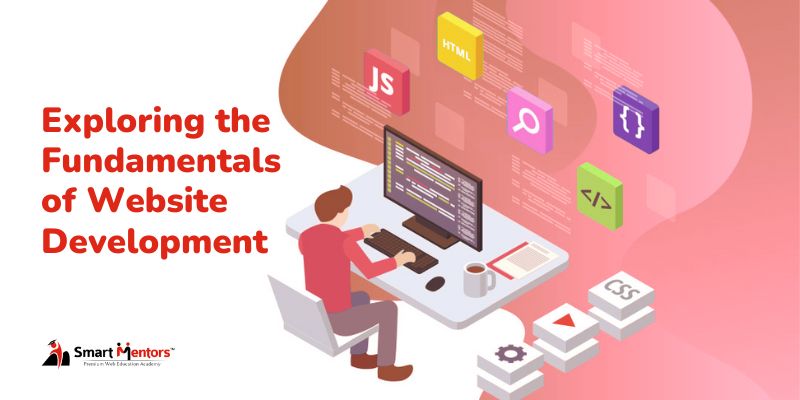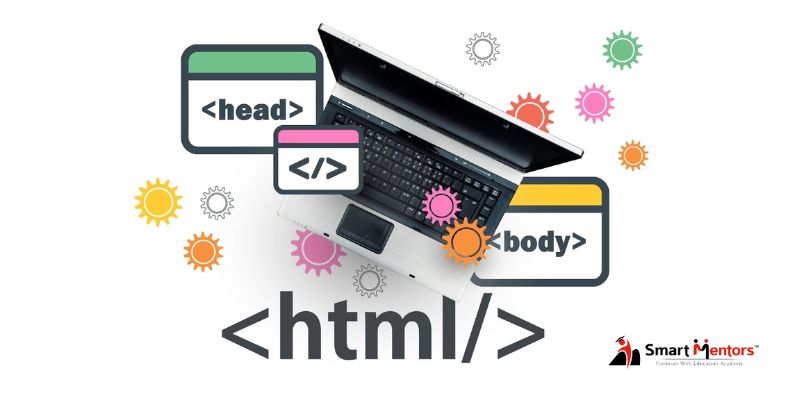Building a Strong Foundation: Exploring the Fundamentals of Website Development

In the fast-paced and ever-evolving digital landscape, having a solid understanding of website development is crucial for anyone looking to make a mark in the tech industry. Whether you are a beginner taking your first steps into the world of coding or an experienced developer seeking to deepen your knowledge, a well-structured course focusing on the fundamentals of website development is the key to success. Let’s delve into the core aspects that such a course typically covers, providing a robust foundation for aspiring web developers.
The Fundamentals of Website Development Course
1. HTML: The Backbone of Web Development

At the heart of every web page lies HTML (Hypertext Markup Language). It serves as the foundational building block, defining the structure and content of a webpage. Understanding HTML is akin to learning the alphabet before delving into language and literature. In a comprehensive website development course, participants not only grasp the syntax of HTML but also learn to create semantically meaningful structures. This involves utilising various HTML tags to organise content, from headings and paragraphs to lists and tables.
Moreover, a strong HTML foundation extends beyond static web pages. Aspiring developers learn to incorporate multimedia elements like images and videos, making their websites dynamic and engaging. Emphasis is placed on accessibility, ensuring that websites are inclusive and user-friendly. With HTML forming the backbone of the web, mastering it is the first step towards becoming a proficient web developer.
2. CSS: Styling for Aesthetics and Responsiveness

While HTML provides the structure, Cascading Style Sheets (CSS) add style and visual appeal to web pages. In a website development course, participants explore the art of styling, mastering the intricacies of CSS selectors, properties, and values. This includes understanding the box model positioning elements and creating responsive designs that adapt seamlessly to various screen sizes, from desktops to mobile devices.
A well-rounded CSS curriculum covers the basics of styling and delves into more advanced concepts such as flexbox and grid layouts. Participants learn to create visually stunning and user-friendly interfaces, gaining insights into design principles and user experience.
Additionally, the course emphasises the significance of CSS frameworks like Bootstrap, empowering developers to streamline their workflow and build responsive websites efficiently. With CSS skills in their toolkit, web developers can transform a plain HTML document into an aesthetically pleasing and functionally efficient website.
3. JavaScript: Adding Interactivity and Functionality
Every exploration of website development fundamentals is complete with delving into JavaScript. JavaScript is the programming language that breathes life into web pages, enabling interactivity and dynamic functionality. In a comprehensive course, participants learn the essentials of JavaScript, from basic syntax to more advanced concepts like functions, objects, and event handling.
Understanding JavaScript is pivotal for creating engaging user experiences. Developers gain the ability to manipulate the Document Object Model (DOM), allowing them to update and modify content on the fly, respond to user inputs, and create interactive forms. Asynchronous JavaScript, often handled through AJAX, is also a crucial aspect covered in the course, enabling developers to fetch data from servers without reloading the entire page.
Furthermore, a well-structured website development course provides insights into the importance of JavaScript frameworks and libraries, such as React or Vue.js. These tools empower developers to build complex and interactive user interfaces efficiently, fostering a deeper understanding of modern web development practices.
4. Version Control: Collaborative Development with Git
In the collaborative world of web development, version control is indispensable. A strong foundation in version control, mainly using Git, is vital to any website development course. Participants learn the basics of Git, including creating repositories, branching, merging, and resolving conflicts. These skills are essential for effective collaboration within development teams, ensuring that changes are tracked, reversible, and well-documented.
Understanding version control enhances collaboration and serves as a safety net for individual developers. Learning to manage code versions allows developers to experiment with new features or changes without fear of irreversibly breaking their codebase. It fosters a disciplined approach to development, promotes best practices, and ensures that projects are scalable and maintainable in the long run.
5. Responsive Design: Adapting to the Multi-Device World
As the use of various devices to access the internet continues to rise, responsive design has become a critical aspect of modern web development. A website development course that prioritises fundamentals should delve into creating layouts that seamlessly adapt to different screen sizes. Participants learn the principles of responsive design, employing techniques such as media queries to optimise user experiences on devices ranging from smartphones to large desktop monitors.
Understanding responsive design is not just about making websites look good on different devices; it’s also about ensuring functionality and accessibility. Through the course, developers gain insights into designing flexible grids and images, allowing content to flow intuitively, and maintaining a cohesive user experience across diverse platforms. This fundamental skill is essential in today’s mobile-centric era, where users expect websites to be visually appealing and easy to navigate, regardless of their device.
6. Web Accessibility: Building for Inclusivity
An often overlooked but crucial aspect of website development is web accessibility. In a comprehensive course, participants are educated on creating websites that are inclusive and accessible to users with diverse abilities. This involves understanding accessibility principles, incorporating proper HTML semantics, and ensuring compatibility with assistive technologies such as screen readers.
By emphasising the importance of accessibility, a website development course fosters a mindset of inclusivity among developers. This fundamental skill is not just about compliance with regulations; it’s about creating an open web. Developers learn to prioritise features like alternative text for images, semantic HTML, and keyboard navigation, making their websites usable by a wider audience and contributing to a more inclusive digital environment.
7. Deployment and Hosting: Taking Websites Live
The journey of a website doesn’t end with its development; it extends to deployment and hosting. A fundamental website development course equips participants with the skills to take their projects live. This includes understanding domain registration, selecting hosting services, and deploying websites using platforms like GitHub Pages or Netlify.
Participants also delve into domain management, SSL certificates, and server configurations. This knowledge is crucial for ensuring the security and performance of websites in a live environment. By guiding developers through the deployment process, the course empowers them to showcase their work to the world, whether a personal portfolio or a professional project.
Conclusion
In conclusion, a well-rounded website development course covers the basics of coding and emphasises the broader aspects that contribute to creating successful and impactful websites. From responsive design to web accessibility and deployment, mastering these fundamentals ensures that developers are proficient in writing code and equipped to develop websites that are functional, accessible, and ready for the real-world web.







No comments, be the first one to comment !